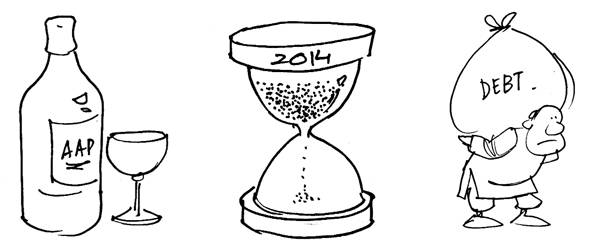
Honor bound
Sir,
Lt Gen (r) SK Pillai shared with me the details of three Indian 5-Assam officers who are thought to be prisoners of war in Pakistan.
Capt Giri Raj Singh (platoon commander of A Company of 5 Assam) was in the Burejal area which was attacked by Pakistan’s 4 Punjab. He was the last man standing, and it is not clear whether he was killed or wounded and captured.
Capt Kalyan Singh Rathod (platoon commander of B Company of 5 Assam) was deployed in the Barsala village area and his platoon was attacked by a squadron of presumably 26 Cavalry of 2 Armored Brigade and a company of either 19 Baluch or 4 Punjab. He too was the last man. In January 1972, at a flag meeting, a Pakistani officer said the Pakistani troops had shouted to Rathod to surrender, and he replied with a burst of LMG fire. It is not clear if he was killed or wounded and captured.
Maj Ashok K Suri died due to shelling in the Chhamb bridge area. There are several witnesses to his cremation. The three letters from him written from a Karachi prison to his now deceased father are a mystery, though the initial mix up with a deceased Kumaon officer of the same name and Maj Mani Ghatraj’s helmet worn by Ashok when he died was cleared up subsequently.
I request my friends in Pakistan to give similar references and details of their POWs alleged to be in Indian custody. I also request The Friday Times, Northern Times, NDTV and the wider public in India, Pakistan, the UK, and the US, to build pressure on Indian and Pakistani governments to release these prisoners of war. They were and are not criminals. They just responded to the calls of duty on both sides.
Col NN Bhatia,
New Delhi.
Rise of common man
Sir,
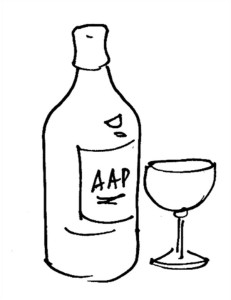 The rise of the Aam Aadmi Party in the recent state elections in India signals a new trend in Indian politics. The phenomenon is apparently a consequence of the mass movement against corruption initiated by activist Anna Hazare. In India, the traditional politics of right and left have failed to deliver. The AAP is the reaction of the common man against the politics of self-interest of both the Congress and the BJP.
The rise of the Aam Aadmi Party in the recent state elections in India signals a new trend in Indian politics. The phenomenon is apparently a consequence of the mass movement against corruption initiated by activist Anna Hazare. In India, the traditional politics of right and left have failed to deliver. The AAP is the reaction of the common man against the politics of self-interest of both the Congress and the BJP.Another factor is the absence of traditional non-progressive political structures in urban India, because of a progressive, educated, politically aware urban middle class. People in general exercise their free will in elections when they enjoy relative political freedom.
If we look at it closely, the rise of Imran Khan’s Tehrik-e-Insaf in Pakistan is similar to the rise of AAP in India. The PTI is a reactionary political party lead by a former cricketer who fought against corruption and always demanded accountability. The PTI too is running a government in one of the provinces. The party won most if its support where traditional absolute political structures are weaker or non-existent.
There are no complex ideals behind the mass political success of the PTI, only simple issues faced by the common people in Pakistan.
This new issue-focused trend in the politics of the Indian sub-continent may be a game changer. It is the reaction of an educated performance-oriented urban middle class against the forces of status quo.
In the words of Karl Marx, “The history of all hitherto existing society is the history of class struggles.” The early manifestations of this phenomenon in Pakistan were the lawyers’ movement – a catalyst in the rise of PTI. This thrust of the middle class has certainly put the ruling class under lot of pressure to improve governance.
The subcontinent is going through a transformation, where the welfare of the common man is taking the center stage in politics. The class struggle is on, and I hope 2014 will bring good news for the common man.
Atif Mahmood Majoka,
Melbourne.
Bhutto’s Islam
Sir,
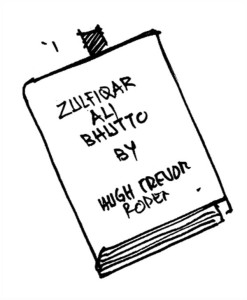 Zulikar Ali Bhutto was committed to history. He was an avid reader with a perspicacious mind and derived strength and understanding in politics, as others have done, from his ability to place the present moment in a long historical process.
Zulikar Ali Bhutto was committed to history. He was an avid reader with a perspicacious mind and derived strength and understanding in politics, as others have done, from his ability to place the present moment in a long historical process.His idea of Pakistan’s position in history was linked to the total history of Islamic civilization. Bhutto was committed to Islam as a way of life: a way of life though not in the narrowly obscurantist sense. He looked at Islam as a dynamic religion perfectly capable of subsuming within its fold modernity, progress and reform.
Why had that great civilization declined? Not, he believed, through lack of spiritual strength – but through spiritual obscurantism, which barred the way to economic understanding. What was needed, therefore, was not an Islamic revival, in a religious sense, but the strengthening of Islamic identity by modern science, modern technology and modern administration. Islam, he believed, could be regenerated, could recover its past greatness – but by a progressive outlook. It was this that made him introduce the notion of Islamic socialism and cultivate closer relations with the Islamic countries – support the Arabs on the Palestine issue, seek the practical collaboration of Turkey and Iran, and preside, in 1974, over the Islamic Summit in the old Mogul capital of Lahore.
“My vision is that of a Pakistan whose social standards are comparable to those in parts of Europe,” he had said. “This means a war against illiteracy and ignorance. It means fighting prejudice and obscurantism. It involves the equality of men and women. It demands the mobilization of the people’s collective energies. It dictates the restoration to the human person, the citizen of Pakistan, of the dignity that is his due. It requires a check on the growth of population and easy access to education and medical care throughout the country. It contemplates better towns and cities and cleaner villages. It poses a hundred challenges. It is a long haul. We have braced ourselves for it.”
Sohail Zafar,
Lahore.
Another 1947
Sir,
 By some interesting coincidence, the calendars for the fateful year of 1947 and the new year 2014 are identical. I hope our stars are not also in identical alignment.
By some interesting coincidence, the calendars for the fateful year of 1947 and the new year 2014 are identical. I hope our stars are not also in identical alignment.Given the sterling qualities of Sadiq and Ameen of the majority of our leaders, legislators and politicians, the blurring of the distinction between our friends and foes, and the increasing global isolation that we have managed to put ourselves in, one prays that 2014 will be better. I hope it will bring back sanity to those who govern us, dedication and honesty of purpose to our lawmakers, and the spirit of tolerance to the people.
What does the coincidence portend? We must remember that 1947 was a year of dismemberment and carnage – one of the greatest in recorded history. It was also the year this fledgling state, bankrupt and alone, without a predictable future, but with hope and a belief in the vision of a great leader, came into being. Today we have all of the above, but not even a single visionary leader.
As we go into 2014, I pray the Almighty cleanses the collective mind of India and Pakistan with a divine detergent. We have squandered the legacy, the freedoms and the opportunities that could have raised our joint 1.5 billion people into a socio- economic powerhouse of fraternal states. Perhaps the memory of the pointless bloodshed of 1947, and the 66 largely wasted subsequent years, may let us get back on to the path so many millions willingly gave their lives for and from which we have deviated so far.
Dr Mervyn Hosein,
Karachi.
Tax or perish
Sir,
 The PML-N government has inherited a lot of baggage –outstanding debts, a stagnant economy, the energy crisis, spiraling inflation, poor law and order, state corporations on the verge of technical insolvency, a rising deficit, a worsening tax to GDP ratio, and terrorism at its peak.
The PML-N government has inherited a lot of baggage –outstanding debts, a stagnant economy, the energy crisis, spiraling inflation, poor law and order, state corporations on the verge of technical insolvency, a rising deficit, a worsening tax to GDP ratio, and terrorism at its peak.The problems Pakistan faces because of years of poor governance and failure to enforce the rule of law are gigantic, and require immediate measures and brave decisions.
In the first 200 days of the government, except for improvement in power generation, a principled decision to initiate treason charges against Pervez Musharraf, and efforts to curtail crime in Karachi, there seem to be no structural changes or reforms in the offing, nor any strategic move to widen the tax base or to improve the working of state corporations through better governance and strict regulatory controls.
What we witness instead is a repetition of tax amnesty schemes for tax evaders. The moves will only promote tax evasion. No country in the world, including Pakistan, has ever managed to increase tax collection through amnesty schemes.
In countries where taxes are collected efficiently, the tax collector puts onus on an individual holding an asset, bank account, or property, to justify their source of income. In such countries, tax evasion is considered a more heinous crime than even murder, because very edifice of state machinery and its obligatory welfare and law enforcement capacity, will be shattered if taxes are not collected from those who earn more than a stipulated income.
Ali Malik,
Lahore.
Majesty of law
Sir,
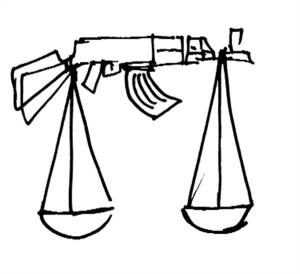 Pakistan did not come into being because of an armed struggle, but because of a constitutional battle spearheaded by Jinnah. Yet for almost four decades, the country was ruled by men whose legitimacy flowed from the barrel of the gun, while the constitution and the law were suspended, or humbled on whims of power groups.
Pakistan did not come into being because of an armed struggle, but because of a constitutional battle spearheaded by Jinnah. Yet for almost four decades, the country was ruled by men whose legitimacy flowed from the barrel of the gun, while the constitution and the law were suspended, or humbled on whims of power groups.We need the majesty of law, which everybody submits to, irrespective of their status or power, not the law of the jungle. This country has tolerated armed thugs and criminals who terrorize its citizens, forcibly occupying private and state property belonging to peaceful law abiding individuals, living in cities like Karachi and not just small towns and villages, while those in power chose to look the other way.
In the name of ground realities, or some convoluted concept of security strategy, we allowed religious extremists and sectarian warlords to create pockets of power in the state, not realizing that such nuisances will breed bigger demons that would threaten the very foundations of the state. In such an environment, a bigger, stronger group calling itself TTP emerged, taking over control of large areas of what constitutes the territory of Pakistan. But the tragedy is that those who have been entrusted public offices of importance lack the intellectual capacity and foresight to re-evaluate their follies and consequences of their myopic vision.
We have seen the mighty Soviet Union collapse, crumble and disintegrate in spite of its massive military power, but fail to learn any lessons.
Former president Pervez Musharraf has been charged by an elected federal government to face charges of treason, and any attempt to stop the law to take its course will have disastrous consequences for this country.
Tariq Ali,
Lahore.
Counterstrike
Sir,
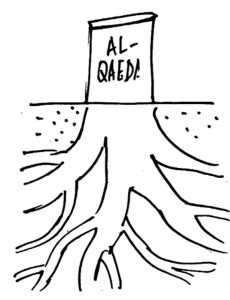 Throughout 2012 and much of 2013, the Barack Obama administration has maintained that Al Qaeda is on the path to defeat and terrorism is no longer the threat it once was. Nothing could be further from truth.
Throughout 2012 and much of 2013, the Barack Obama administration has maintained that Al Qaeda is on the path to defeat and terrorism is no longer the threat it once was. Nothing could be further from truth.Before 9/11, Al Qaeda maintained large-scale operations in South Asia, with training camps and operational capabilities. But as 2014 begins, Al Qaeda controls or operates in more territories around the globe than it did at any point in time since its creation in 1988. Al Qaeda and its affiliates are resurging in Iraq, a major player in Syria, a force in Yemen and Somalia, still active in Afghanistan and Pakistan, operational in the Caucasus, and in pockets throughout the Middle East and North Africa.
Over the last several years, Al Qaeda has developed a new strategy to foster affiliate groups that still maintain strong connections to the core. Specialized training for a jihadist is no longer limited to the battlefields of Iraq and Afghanistan. In Syria, legions of Al Qaeda acolytes from all over the world, including Europe and the United States, are joining its cause on the battlefield. Eventually, they will return home and continue their fight against freedom.
In Mali, the year began with France spearheading a military intervention to push back jihadist groups that had seized territory in the northern part of the impoverished country in the bone-dry Sahel region of Africa. France’s operation achieved some success, but a brigade led by Mokhtar Belmokhtar who has pledged his loyalty directly to Al Qaeda’s senior leaders seized more than 800 hostages in a retaliatory operation at Algeria’s In Amenas gas complex. At least 39 foreign hostages were killed during the operation.
In Libya, the new government has never been able to assert its authority, and that has helped the jihadist cause. Some of the In Amenas attackers reportedly trained in southern Libya, where camps prepare militants for suicide missions among other things. And as France advanced on the battlefield in Mali, many jihadist fighters fled to southwest Libya, where they evaded pursuit by “blending with local militant groups,” according to the Wall Street Journal.
In Iraq, more than 6,000 people had died in jihadist violence – the highest level of fatalities since 2007, the peak year of Iraq’s bloody civil war. As US forces withdrew from Iraq two years ago, American and Iraqi officials expressed concerns that Al Qaeda was “poised for a deadly resurgence.”
In Somalia, another Al Qaeda franchise resurged this year – the Somali militant group Al Shabab, which once controlled more territory in southern Somalia than the country’s UN-recognized government. It had lost its last major urban stronghold of Kismayo to advancing African Union forces in October 2012, but remained lethal. On September 21, terrorists associated with the group launched a spectacular assault on Nairobi’s Westgate Mall. The attack dragged on for four days, killing 67 and injuring at least 175. But even before that, there were signs that a complex operation like Westgate was possible, as Shabab carried out increasingly sophisticated attacks throughout the year. These included an attack on a Mogadishu courthouse that killed 29, and a twin suicide bombing at Mogadishu’s UN compound that claimed 22 lives.
In Syria, jihadists built on the gains they had made in 2012. Extremist groups like Jabhat al-Nusra and the Islamic State of Iraq and al-Sham – affiliates of Al Qaeda – have proven to be some of the country’s most effective rebel factions. As 2013 ends, jihadists have been able to gain full control over such cities and towns as Raqqa and Shadadi in the north. ISIS has become adept at the targeted use of violence against Raqqa’s citizens, for the purposes of dominating and intimidating them as it implements a harsh version of Islamic law.
This isn’t what I’d call success.
Manish Rai,
New Delhi.

